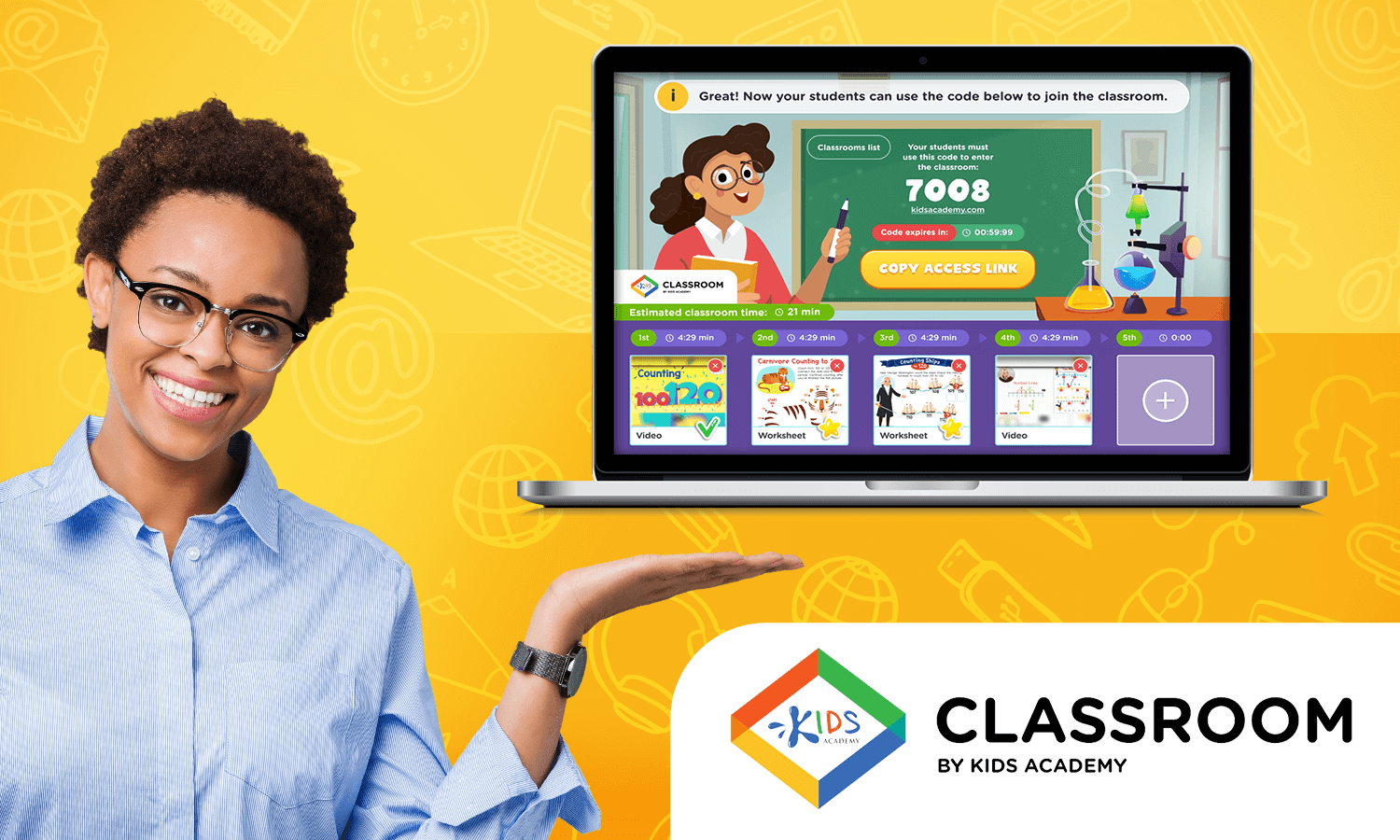Easy Alphabet worksheets activities for Ages 6-8
5 filtered results
-
From - To
Welcome to our "Easy Alphabet Worksheets Activities for Ages 6-8" page! Designed to make learning fun and engaging, our worksheets help young learners master the alphabet through playful, hands-on activities. From tracing letters to matching games, each worksheet is thoughtfully crafted to enhance letter recognition and phonetic skills. Perfect for home or school use, these activities are ideal for encouraging creativity while reinforcing essential literacy concepts. Explore a variety of age-appropriate worksheets that will captivate your child's attention and inspire a lifelong love for reading and writing. Start your alphabet adventure today with our easy-to-use resources!
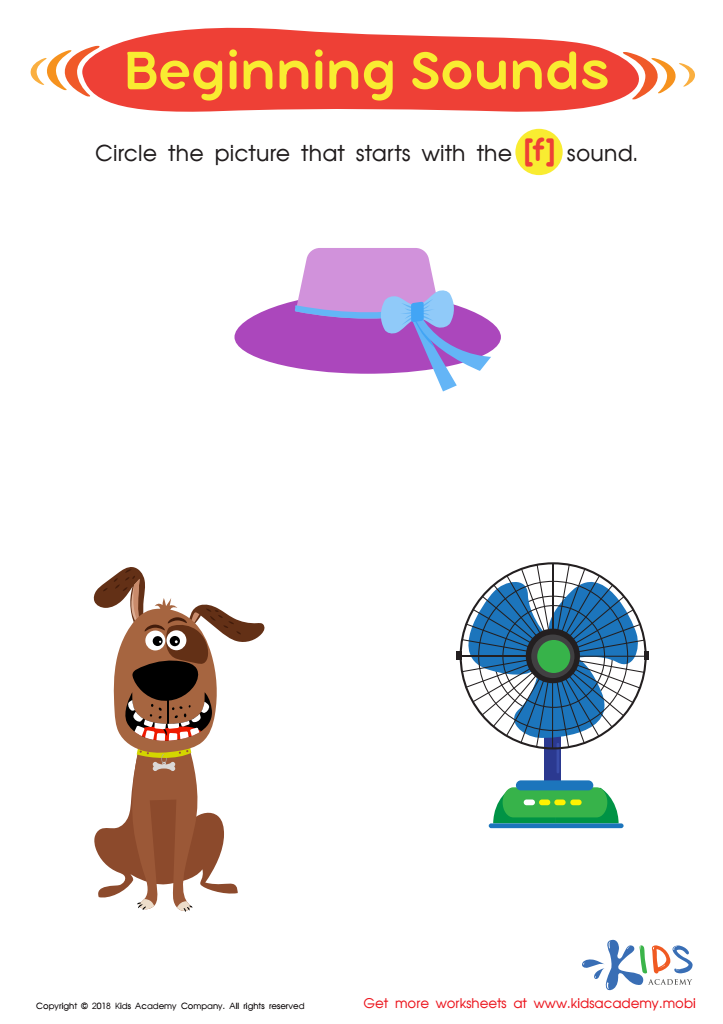

Beginning Sounds Assessment Printable
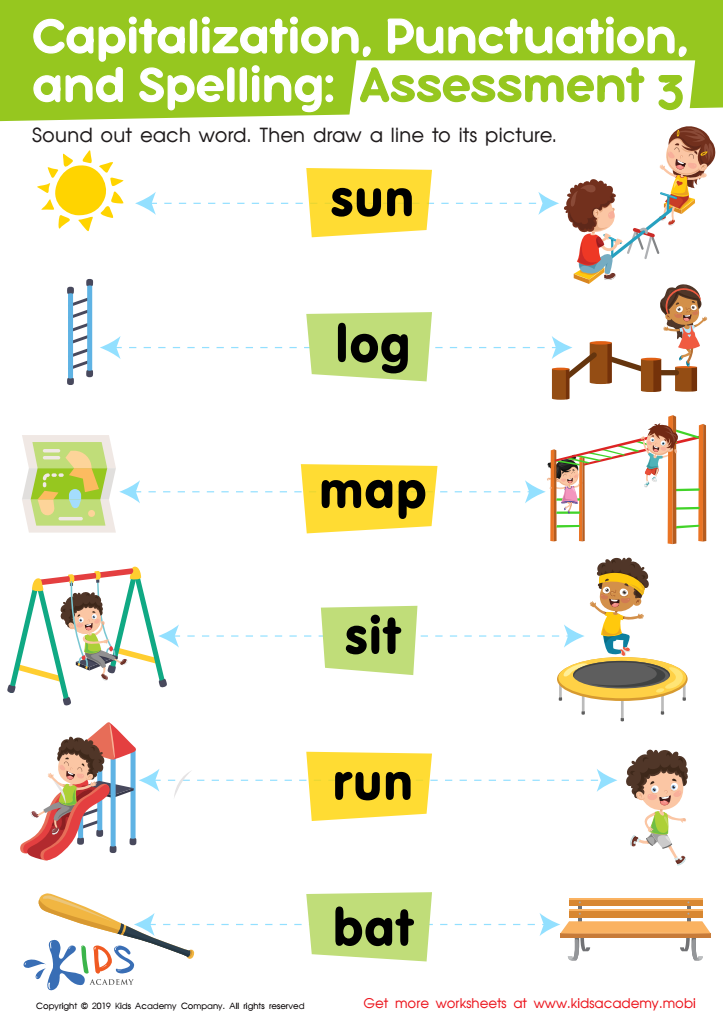

Capitalization. Punctuation. Spelling. Assessment 3 Worksheet
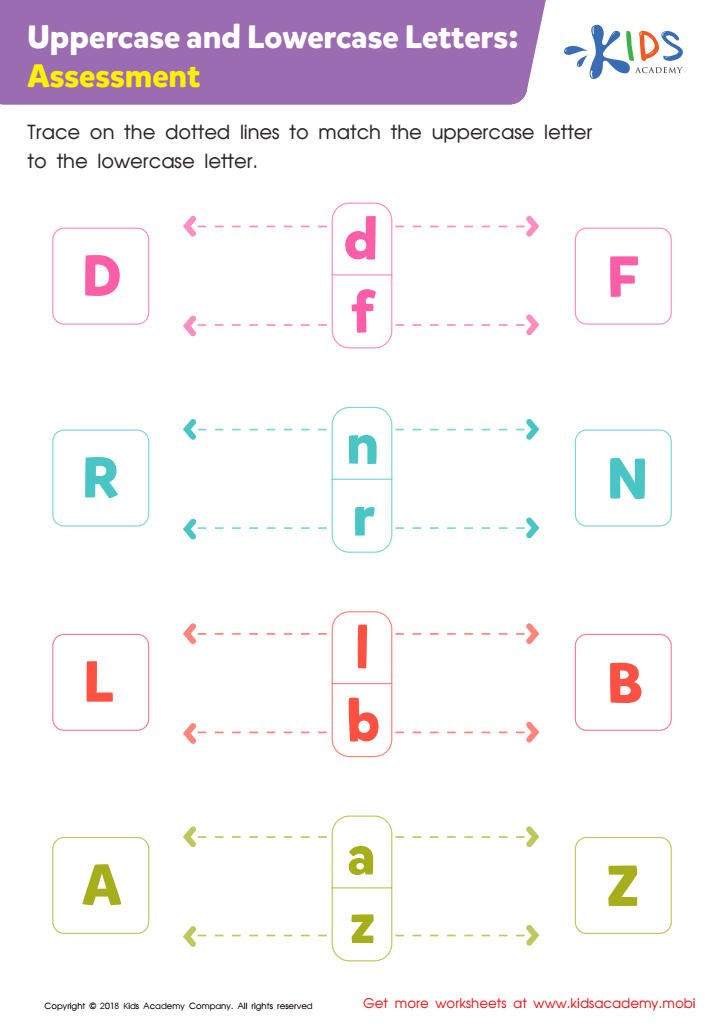

Uppercase and Lowercase Letters: Assessment Worksheet


Phonics and Word Recognition: Assessment 1 Worksheet
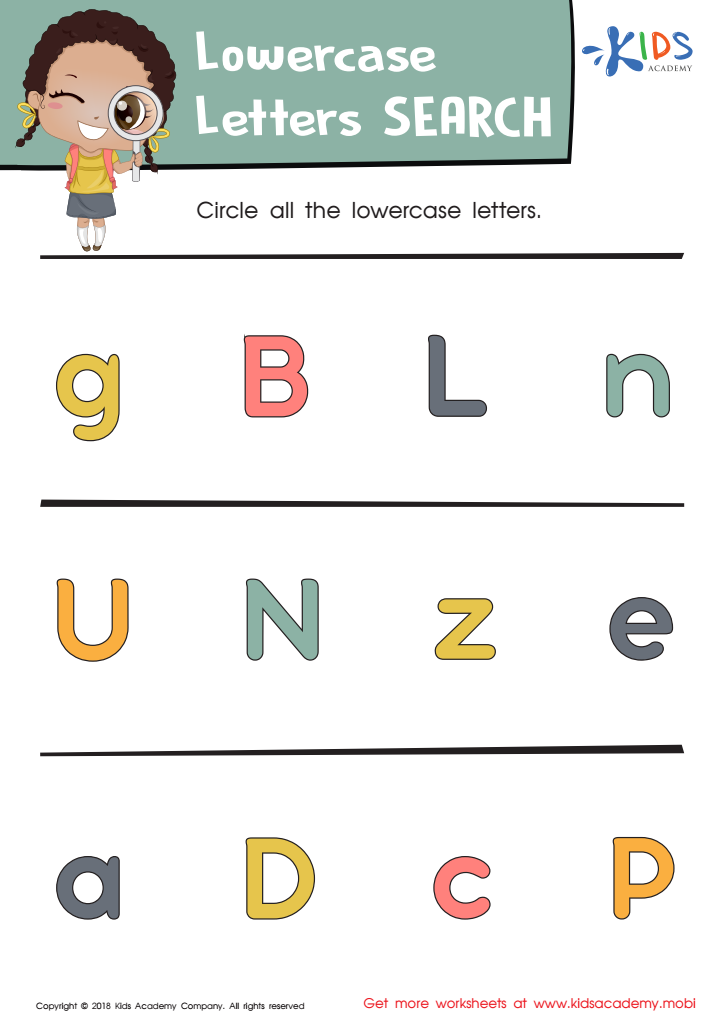

Lowercase Letters Search: Assessment Worksheet
Parents and teachers should prioritize Easy Alphabet activities for children aged 6-8 because these foundational exercises enhance literacy development critical for lifelong learning. At this age, children are making the transition from learning to read to reading to learn, making a robust understanding of the alphabet essential. Engaging in these activities fosters phonemic awareness, helping children recognize sounds and their corresponding letters. This skill is a stepping stone for effective decoding when they encounter new words.
Moreover, Easy Alphabet activities are versatile and can be tailored to different learning styles, ensuring engagement and enthusiasm. These resources often incorporate playful learning elements, such as games, songs, and crafts, making the process enjoyable and thereby increasing retention.
Integrating these activities into daily routines builds connections between letters and sounds, enhancing vocabulary acquisition. Research indicates that early mastery of the alphabet correlates with improved reading skills and academic success in later grades.
Additionally, parents and teachers can encourage collaborative learning experiences through group activities, strengthening social skills as children learn to work together. By focusing on Easy Alphabet activities, adults not only support literacy development but also instill a love for learning that lays the groundwork for future exploration and intellectual growth.
 Assign to My Students
Assign to My Students




